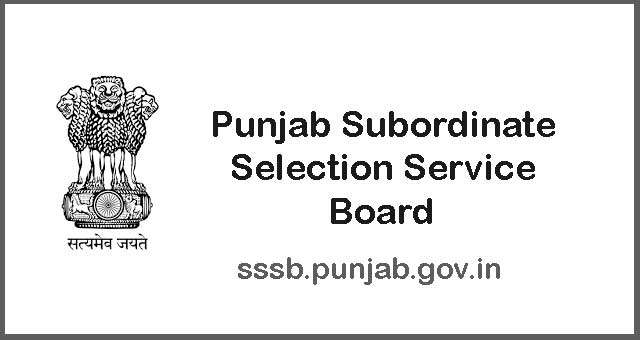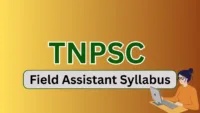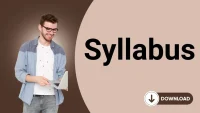PSSSB Jail Warder Syllabus Exam Pattern 2025: The Punjab Subordinate Services Selection Board (PSSSB) has released detailed information about the Jail Warder Syllabus 2025, offering a golden opportunity for job seekers looking to build a career in the prison department. With 500 vacancies announced, this recruitment drive presents excellent prospects for candidates who understand the exam structure and prepare strategically.
Understanding the PSSSB Jail Warder syllabus is crucial for success in this competitive examination. This comprehensive guide breaks down everything you need to know about the exam pattern, subject-wise topics, and preparation strategies to help you secure your position as a Jail Warder or Matron in Punjab.
PSSSB Jail Warder Syllabus 2025 Summary
Aspect | Details |
|---|---|
Recruiting Authority | Punjab Subordinate Services Selection Board (PSSSB) |
Post Name | Jail Warder and Matron |
Total Vacancies | 500 Posts |
Exam Mode | Computer-Based Test (CBT) |
Total Questions | Part A: 50 (Punjabi) + Part B: 100 (Main Exam) |
Total Marks | Part A: 50 + Part B: 100 |
Exam Duration | Part A: 60 minutes + Part B: 100 minutes |
Negative Marking | 0.25 marks deducted for wrong answers |
Selection Process | Written Exam → Physical Tests → Document Verification |
Minimum Education | 10+2 (Senior Secondary) |
Official Website | sssb.punjab.gov.in |
PSSSB Jail Warder Exam Pattern 2025
The PSSSB Jail Warder examination follows a well-structured pattern designed to assess candidates across multiple competencies. The exam consists of two distinct parts, each serving a specific purpose in the selection process.
Part A: Punjabi Language Test (Qualifying)
This section serves as a qualifying component, testing candidates’ proficiency in Punjabi language:
- Questions: 50 multiple-choice questions
- Marks: 50 marks (1 mark per question)
- Duration: 60 minutes
- Nature: Qualifying only (candidates must pass to proceed)
Part B: Main Examination
The main examination evaluates candidates across six crucial subjects:
Subject | Questions | Marks | Weightage |
|---|---|---|---|
General Knowledge & Current Affairs | 25 | 25 | 25% |
Punjab History & Culture | 17 | 17 | 17% |
Logical Reasoning & Mental Ability | 25 | 25 | 25% |
Punjabi Language | 13 | 13 | 13% |
English Language | 12 | 12 | 12% |
ICT (Information Technology) | 8 | 8 | 8% |
Total | 100 | 100 | 100% |
PSSSB Jail Warder Syllabus 2025 Subject-wise Here
Candidates must go through the PSSSB Jail Warder Syllabus in PDF format online from the official website. Also, the aspirants can check the exam syllabus from here for free. The Punjab SSSB Jail Warder Syllabus is provided below. Candidates go through the syllabus. With the help of this syllabus, you can concentrate on the important topics and easily crack the upcoming exam. The syllabus can also be downloaded in PDF format.
General Knowledge and Current Affairs (25 Marks)
This section covers a broad spectrum of topics to test your awareness of national and international developments:
Core Topics:
- Polity Issues: Constitutional provisions, government structure, and political developments
- Current Affairs: Recent national and international events, government policies, and significant appointments
- Science and Technology: Latest innovations, space missions, and technological advancements
- Economic Issues: Budget highlights, economic policies, and financial developments
- Indian History: Freedom Struggle Movement, major historical events, and important personalities
- Geography: Physical features, climate patterns, and important geographical landmarks
- Sports: Recent tournaments, achievements, and sports personalities
- Arts and Literature: Cultural developments, literary works, and artistic achievements
- Environment: Climate change, conservation efforts, and environmental policies
Punjab History and Culture (17 Marks)
This section focuses specifically on Punjab’s rich heritage and cultural background:
Key Areas:
- Physical Features: Geography, rivers, and topographical aspects of Punjab
- Ancient History: Early civilisations and historical developments in the region
- Social and Religious Life: Traditional practices, festivals, and religious significance
- Economic Development: Agricultural practices, industrial growth, and economic evolution
- Language and Literature: Development of Punjabi literature and linguistic heritage
- Arts and Culture: Traditional art forms, music, dance, and cultural practices
- Medieval Period: Afghan and Mughal rule’s impact on Punjab
- Religious Movements: Bhakti movement, Sufism, and their influence
- Sikh Heritage: Teachings and history of Sikh Gurus and saints
- Freedom Movement: Punjab’s role in India’s independence struggle
Logical Reasoning and Mental Ability (25 Marks)
This section tests your analytical and problem-solving capabilities:
Reasoning Components (17 Marks):
- Logical Sequences: Pattern recognition and series completion
- Analogies: Relationship identification between concepts
- Classification: Odd one out and categorization problems
- Coding-Decoding: Symbol and number substitution problems
- Direction Sense: Spatial reasoning and navigation problems
- Blood Relations: Family relationship puzzles
- Ranking and Arrangement: Logical positioning problems
Numerical Skills (4 Marks):
- Basic Mathematics: Number operations and calculations
- Percentages: Basic percentage problems and applications
- Ratios and Proportions: Simple ratio calculations
- Numerical Relations: Number comparison and relationships
Data Analysis (4 Marks):
- Chart Interpretation: Reading and analyzing bar charts, pie charts
- Table Analysis: Data extraction from tabular information
- Graph Reading: Line graphs and trend analysis
- Spreadsheet Basics: Understanding data organization
English Language (12 Marks)
This section evaluates your command over English language fundamentals:
Grammar and Usage:
- Parts of Speech: Nouns, pronouns, adjectives, verbs, adverbs
- Tenses: Present, past, and future tense applications
- Articles: Proper usage of ‘a,’ ‘an,’ and ‘the’
- Prepositions: Correct preposition usage in sentences
- Conjunctions: Connecting words and phrases appropriately
Vocabulary and Comprehension:
- Synonyms and Antonyms: Word meanings and opposites
- One Word Substitution: Single words for phrases or expressions
- Idioms and Phrases: Common expressions and their meanings
- Fill in the Blanks: Context-based word selection
- Error Spotting: Identifying grammatical mistakes
- Sentence Correction: Improving sentence structure
ICT (Information and Communication Technology) (8 Marks)
This section covers basic computer literacy and digital awareness:
Computer Fundamentals:
- Basic Components: Hardware and software understanding
- Operating Systems: Windows basics and file management
- Input/Output Devices: Keyboard, mouse, printer, scanner functions
Internet and Networking:
- Internet Basics: Web browsing, email communication
- Search Engines: Effective information searching techniques
- Social Media: Understanding digital platforms and their uses
- Network Concepts: LAN, WAN, and connectivity basics
Office Productivity Tools:
- MS Word: Document creation, formatting, and editing
- MS Excel: Spreadsheet creation, basic formulas, and data entry
- MS PowerPoint: Presentation creation and design basics
- File Management: Organizing, saving, and sharing documents
Physical Tests and Requirements
Physical Measurement Test (PMT)
Candidates must meet specific physical standards:
For Male Candidates (Jail Warder):
- Height: Minimum 5 feet 7 inches (5 feet 4.5 inches for Dogras and Gurkhas)
- Chest: 33 inches unexpanded, 34.5 inches expanded
- Vision: Normal vision in both eyes (corrective lenses permitted)
For Female Candidates (Jail Matron):
- Height: Minimum 5 feet 3 inches
- Weight: Minimum 50 kg
- Vision: Normal vision in both eyes (corrective lenses permitted)
Physical Efficiency Test (PET)
Male Candidates:
- 100-meter Run: Complete within 15 seconds (one attempt)
- Shot Put: Throw 7.26 kg weight to 5.50 meters (three attempts)
- Rope Climbing: Climb 15 feet (three attempts)
Female Candidates:
- 100-meter Run: Complete within 18.5 seconds (one attempt)
- Shot Put: Throw 7.26 kg weight to 4.00 meters (three attempts)
- Rope Climbing: Climb 12 feet (three attempts)
Strategic Preparation Tips for Success
Time Management Strategy
Create a systematic study schedule that allocates appropriate time to each subject based on its weightage:
- Daily Study Plan: Dedicate 4-5 hours daily with subject rotation
- Weekly Reviews: Assess progress and identify weak areas
- Mock Tests: Take practice tests weekly to improve speed and accuracy
- Current Affairs: Spend 30 minutes daily reading newspapers and magazines
Subject-Specific Preparation Approach
For General Knowledge:
- Read daily newspapers focusing on national and international news
- Follow monthly current affairs magazines
- Create notes on important events, dates, and personalities
- Practice previous year questions regularly
For Reasoning:
- Solve reasoning puzzles daily to improve logical thinking
- Practice different question types systematically
- Time yourself while solving problems
- Learn shortcut methods for quick calculations
For Languages:
- Strengthen grammar fundamentals through regular practice
- Build vocabulary by learning new words daily
- Read English and Punjabi newspapers regularly
- Practice writing skills and comprehension exercises
For Computer Knowledge:
- Gain hands-on experience with basic software applications
- Stay updated with latest technology trends
- Practice typing to improve computer familiarity
- Learn basic troubleshooting techniques








